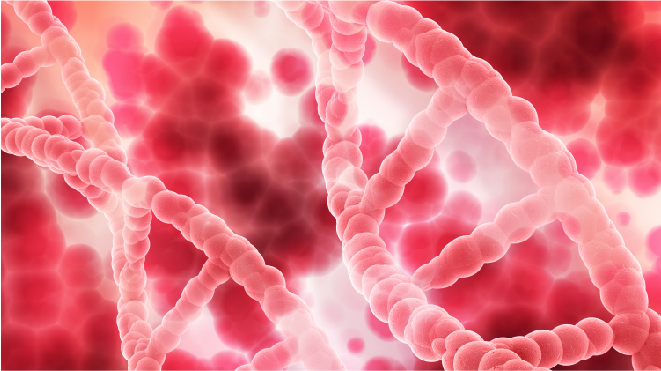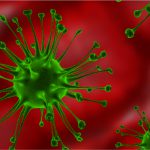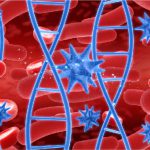What happens in Blood Cancer:
Cell division is a process fundamental to all life forms; it is essential for growth, and for replacing old and worn-out cells. Cancer is a condition where cells of a certain tissue start growing uncontrollably. The same happens in blood cancer too. Blood cancers, as is evident from the name, are the cancers of the blood cells.

Blood cells are of three main types- red blood cells, white blood cells, and platelets, which carry out different functions. The blood cells, in most of the cases, the white blood cells start multiplying rapidly. The consequences of this are twofold:
- The cancerous cells divide faster than the healthy cells, and as a result, they crowd the bone marrow. This implies a decrease in the production of healthy red blood cells and platelets.
- The cancerous cells which grow in numbers, do not function like they normally should. Meaning these cells do not support our body like they normally do.
Symptoms of Blood Cancer:
The symptoms of blood cancer may often be ignored or overlooked. This is because they are nonspecific and can be usually explained by flu or other common illnesses. But one must consult a doctor if any of the symptoms persist, and early diagnosis of blood cancer is essential for recovery.
The symptoms of blood cancer are because of the imbalance in the volumes of different types of blood cells. The manifestation of these symptoms depends on the type of blood cancer, the stage of cancer in the person, the progression (acute or chronic), and even differs from person to person.
Anemia:
Anemia is the condition where a person has a lower blood count of red blood cells than is optimum, or the hemoglobin content in the blood is low. The primary function of the red blood cells is to carry oxygen from the lungs to the rest of the body. So in anemia, the cells cannot give enough oxygen to the tissues, which shows the following symptoms:
- Fatigue
- Weakness
- Shortness of breath
- Dizziness or lightheadedness
- Pale yellowish skin
- Chest pain
- Headache etc.
Thrombocytopenia:
Blood platelets (or thrombocytes), and these cells are primarily responsible for blood clotting (coagulation) and prevent blood loss in case of wounds and injuries. Thrombocytopenia is an abnormally low level of these cells in the blood. The symptoms that characterize this condition are as follows:
- Easy or excessive bruising
- Pinpoint sized reddish spots on the skin due to superficial bleeding into the skin (petechiae)
- Prolonged bleeding from the cuts
- Bleeding of gums or nose
- Blood in urine or stools
- Unusually heavy menstrual flow
Swelling of Lymph nodes:
Lymph nodes are a part of the lymphatic system that is responsible for the immunity of the body. They act as filters for harmful substances. There are hundreds of lymph nodes throughout the body, and clusters of them in the neck, underarms, chest, abdomen, and groin area. In cancer, the lymph nodes swell due to the building up of abnormal white blood cells in the nodes. They are usually painless but there is pain in some cases.
Unexplained weight loss:
Losing over 5% of the body weight in a month or about 10% in six months without trying is not a regular occurrence and should not be ignored. In the case of cancer, the weight loss is due to continuous cell division, which requires a lot of energy and so increases the person’s metabolism.
Swelling of liver or spleen:
Cancerous cells can build up in the liver or spleen, causing that organ to enlarge or swell. This can put pressure on the abdomen due to which the following can happen.
- It can make a person feel full even on taking small quantities of food and so their appetite decreases.
- It can also cause swelling or bloating of the stomach with occasional pain. Abnormal cells in the spleen cause pain in the right upper abdomen and the same in the liver causes pain in the left upper abdomen.
Fever or infections:
The overall immunity of the person decreases due to blood cancer, low levels of healthy infection-fighting cells (neutrophils) may be noted in particular. This leads to frequent infections or fever without a specific cause. Flu-like symptoms like sore throat, coughing, etc. are due to infections. In case of severe or long-lasting symptoms, one should consult a doctor as it could be a case of blood cancer.
Pain in the bone:
Crowding of the bone marrow can cause pain in the bones, especially in areas with large amounts of bone marrow like in the hips or sternum. In myeloma, a type of blood cancer, bone pain is one of the early symptoms with pain in the back or ribs usually. This pain is typically constant and is made worse by movement. One can also develop holes in the bone, called lytic spots or osteoporosis (the decrease in bone density).
Night sweats:
Night sweats are repeated episodes of excessive sweating due to some underlying medical condition. Night sweats and hot flashes are common in women during their menopause and is also a common side effect of many medications. Unexplainable night sweats can indicate some disorder and need examination.
Related Posts:



